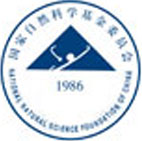 |
PlantRegMap/PlantTFDB v5.0
Plant Transcription
Factor Database
|
| Home TFext BLAST Prediction Download Help About Links PlantRegMap |
| Species | TF ID | Description |
|---|---|---|
Artemisia annua (16) | Aan001999 | TCP family protein |
| Aan008786 | TCP family protein | |
| Aan010569 | TCP family protein | |
| Aan012518 | TCP family protein | |
| Aan014738 | TCP family protein | |
| Aan015267 | TCP family protein | |
| Aan016169 | TCP family protein | |
| Aan017468 | TCP family protein | |
| Aan018336 | TCP family protein | |
| Aan019569 | TCP family protein | |
| Aan019777 | TCP family protein | |
| Aan020422 | TCP family protein | |
| Aan020797 | TCP family protein | |
| Aan021124 | TCP family protein | |
| Aan021599 | TCP family protein | |
| Aan021788 | TCP family protein |
The TCP gene family was first described in 1999, as a small group of plant genes encoding proteins sharing the socalled TCP domain, a 59-amino acid basic helix-loop-helix (bHLH) motif that allows DNA binding and protein-protein interactions. This domain was initially identified in four proteins encoded by apparently unrelated genes, from which the name 'TCP' was derived: teosinte branched1 (tb1) from maize (Zea mays), CYCLOIDEA (CYC) from snapdragon (Antirrhinum majus), and the PROLIFERATING CELL FACTORS 1 and 2 (PCF1 and PCF2) from rice (Oryza sativa). The tb1 gene is a major determinant of strong apical dominance in domesticated maize. CYC is involved in the control of floral bilateral symmetry in Antirrhinum. PCF1 and PCF2 are factors that bind to the promoter of the rice PROLIFERATING CELL NUCLEAR ANTIGEN (PCNA) gene, which encodes a protein involved in DNA replication and repair, maintenance of chromatin structure, chromosome segregation and cell-cycle progression.
TCP genes have been found in various plant species, and new roles in plant development have been elucidated. These discoveries emphasize the importance of this plant-specific gene family in the evolution and developmental control of plant form.
Martin-Trillo M, Cubas P.
TCP genes: a family snapshot ten years later.
Trends Plant Sci, 2010. 15(1): p. 31-9.
PMID: 19963426



